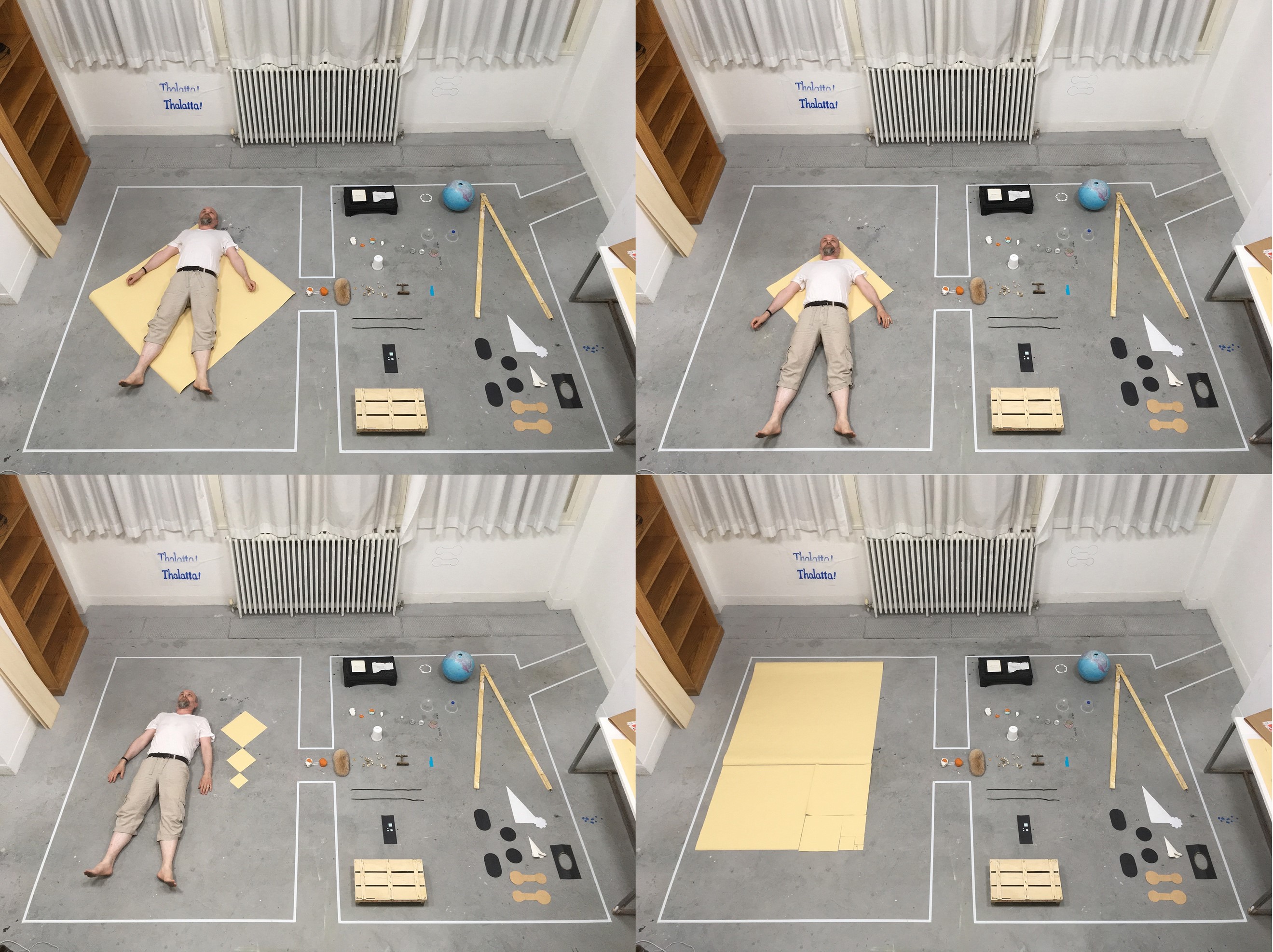The Mead Awards have been generously supported by Scott Mead and The Mead Family Foundation since 2013. The UAL Mead Rome Residency extends the Mead Awards programme to PhD students, providing them with a 4-week residency in a studio at the British School at Rome (BSR).
In the summer of 2019, Karl Foster, PhD student at Chelsea College of Arts was 1 of 3 to be selected for the residency. Here Karl reports back on his experience.

I applied for the UAL Mead British School at Rome residency because I wanted to explore the classical origins of the pedagogical art object. In the late 1760’s, the Royal Academy in London imported a collection of casts of ancient sculpture from Rome, heralding new hierarchies, paradigms, and methodologies in the teaching of art. Martin Postle (2018), suggests that the ‘economic, cultural and intellectual’ interests of a network of influential figures were served through the Royal Academy’s cast collecting policy and associated pedagogical methodologies. The remnants of this cultural initiative continue to be displayed and used in British Art Institutions, albeit in marginal ways. My research aim, is to develop a distinct pedagogical art practice that is material-based and experiential, consisting of objects / images / film / texts / methods that are made for performative use in teaching, rather than exhibition. I wondered if a close examination of what was imported to the United Kingdom from Rome in the 1760s might help shape objects of new art pedagogy.
I wanted to visit Rome to try to see if I could draw out the connections between the contemporary and the Classical art object.

In Rome, I used the studio as a place to extend practical research I had done in the UK about the process of not-knowing in art. This research had unearthed questions about the relationships between ‘mess’, formal aesthetics, Vitruvian proportions, affect, ideas and rhetoric that occur when involved in an unfettered process of not-knowing. As a methodology of not-knowing, I committed to using only discarded materials found in Rome and to following through by making any intuitive responses that they suggested. I also decided to work through a hypothesis formed in my previous research, that the making-visible of a thinking-device in exploratory studio practice might help contain the turbulent nature of this not-knowing process. In the British School studio, I practically explored what happened if I used a ‘holding area’ to frame the found materials, and an ‘arena of play’ as a site of transformation. I cast discarded gloves, footwear, clothing, packaging, etc. and set them into play with other street-finds to see how the cast object impacts-upon or shapes narrative.

The residency has helped me to question and begin to understand the ways in which objects of classical taste, coupled with state sanctioned methods of pedagogy have been used as societal levers to precipitate change.
Cast collections seek to ‘impress-upon’ us, they have been ‘cast-off’ the original object of taste and are ‘cast-forth’, retaining rhetoric through the myths they represent. Complete casts of Greco-Roman artefacts can impress a complete rhetoric, whereas the incomplete casts act differently. In ‘reading’ objects such as the Belvedere Torso we are forced to complete the incomplete, speculate, or imagine. It has now become my speculation that the cast collections assembled by the Royal Academy may have inadvertently introduced this incompleteness into British Art pedagogy. Modern and contemporary art relies on incompleteness and disjuncture as potential space for not-knowing, it is an essential space to counter the known, or resist oppression. It occupies a place at the centre of contemporary art pedagogy. With the decolonisation of higher education curricula the plaster cast faces a challenging future because it is imbued with patriarchal symbolism and other repressive ideologies. It was therefore important in my time in Rome to deconstruct, consider and reconsider how pedagogical objects work and what role they might play in the future. Interestingly, art exhibitions in Rome have begun to grapple and play with the problematic relationship between the Ancient, the Modern and the Contemporary. The UAL / Mead Residency has given me the opportunity to experience this first hand, to work through it practically, and to significantly reshape my research in unexpected ways.
I would recommend the Mead UAL PhD Residency at the British School at Rome to any artist researcher who wishes to consider the relationship between historical and contemporary arts.
The one-month duration of the residency offers the possibility to work through practical research problems in a spacious studio, and without interruption or distraction. It offers a wonderful opportunity to look at, experience, absorb and be affected by some of the most historically significant cultural artefacts, environments and buildings in the world. It was an amazing privilege to be at the British School at Rome, a fascinating array of professionals from differing disciplines constantly pass through the school and knowledge and expertise was generously shared.
The staff of the British School are kind, knowledgeable, generous, thoughtful and supportive.

Reference
Postle, M (2018) ‘Assembling the Antique: the role of the classical cast in the pedagogy of the Royal Academy of Arts, 1769 to 1780’ [Conference Abstract]. In: The British School at Rome, 2018. 'The Roman Art World in the Eighteenth Century and the Birth of the Art Academy' in Britain. [Conference Programme] URL (accessed 04.25.19).

